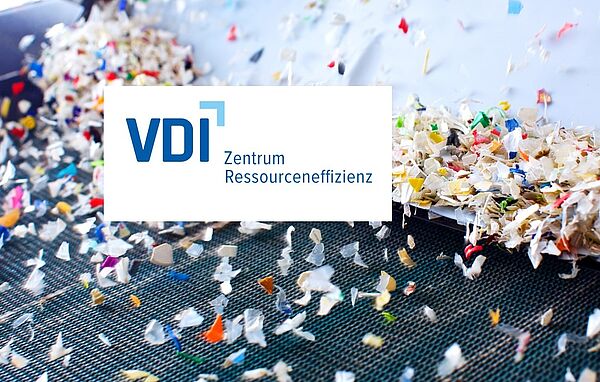At present, many are looking to Brussels with great interest: business and trade, in particular the plastics-using industry as well as the manufacturers of recycled plastics from used sales packaging. There, the draft of the European Packaging & Packaging Waste Regulation (PPWR) is currently being voted on. Among other things, the draft contains specifications for the recyclability of packaging and differentiated recyclate use quotas.
Against this background, the German VDI Center for Resource Efficiency has presented a new study: "Ecological and economic assessment of the resource input - use of recycled plastics in packaging materials" (available only in German). It was produced in collaboration with the Öko-Institut and the cylos-HTP Institute.
In terms of content, the focus is on two questions in particular: Are recycled materials at all suitable for the production of packaging, and does the switch to recycled plastics make economic sense? Using the example of a bucket for wall paint from industrial production, the study compares two concrete plastic-based packaging variants that can be manufactured from a petroleum-based primary plastic on the one hand and with a proportion of recyclates on the other.
The result is a practice-relevant overview of aspects of the use of plastic recyclates for the manufacture of high-quality packaging products with results that speak in favor of the use of recyclates due to their ecological advantages.
Even if the use of recyclates is currently not yet economical, the study sees economic opportunities: it is definitely possible to manufacture products from recyclates more economically than using primary plastics.
In the future, the authors expect strong economic incentives for both plastics recycling and the use of recyclates. Increasing demand for recyclate-based end products shows that plastic consumers are increasingly willing to accept higher prices for these recyclates, they say. One of the reasons for this, they say, is the monetization of the lower carbon footprint of recyclates. In addition, the authors also anticipate the introduction of the discussed plastic levy, which could be used to promote or subsidize the use of secondary plastics.
"This economic policy instrument has the potential to have a steering effect on the markets for primary and secondary raw materials and to provide a real incentive in the direction of circularity," the authors are convinced. For plastics processing companies, this would make the use of recyclates significantly more profitable from an economic point of view.
Picture: VDI Center for Resource Efficiency, Der Grüne Punkt.
